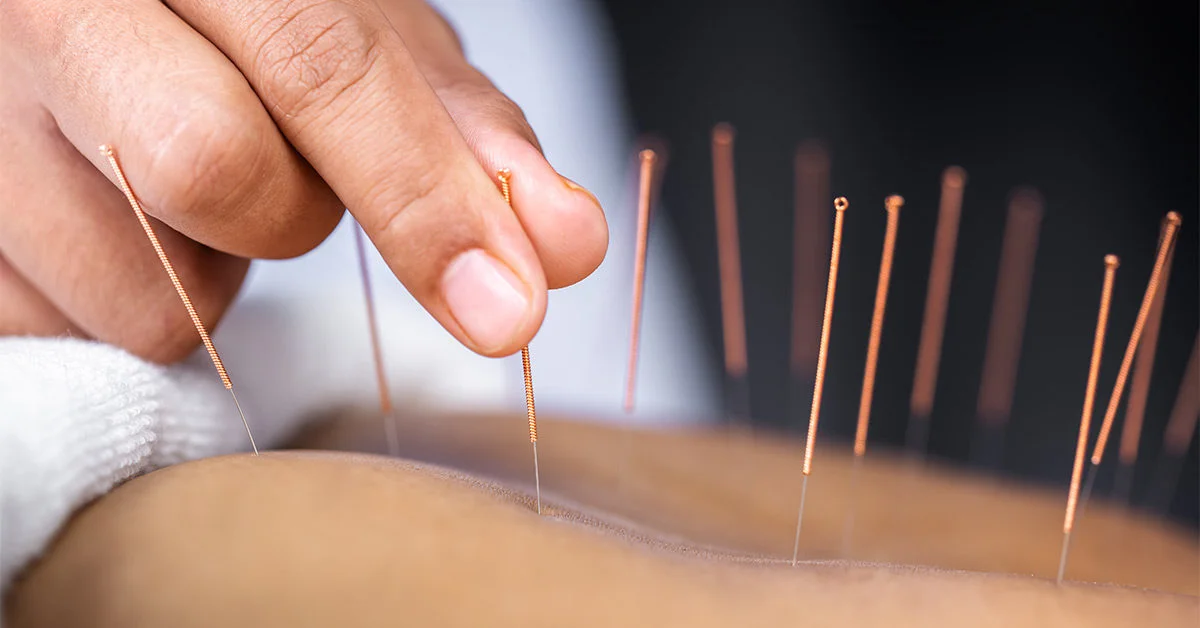
Acupuncture
This is a big deal. Research continues to unfold the scientific mechanism of what happens within the body during acupuncture treatments. I tell my patients that acupuncture is not something you have to “believe in” for it to work.
Acupuncture has been used for over 2,500 years and has shown therapeutic benefits in various neurological disorders, including movement disorders, Parkinson’s disease, and Alzheimer’s disease. The insertion of needles at specific body points, known as acupoints, is believed to bring balance and regulate various signaling pathways. Recent studies suggest that acupuncture may exert its neuroprotective effect through regulation of the brain derived neurotrophic factor (BDNF) signaling pathway.
Acupuncture has been shown to inhibit neurodegeneration through expression and activation of BDNF. Recent studies have also reported that acupuncture increases ATP levels at the stimulated points, activating monocytes and increasing BDNF expression. The therapeutic implications of acupuncture-induced activation of BDNF and its signaling pathway are under ongoing investigation.
The expression of Brain-Derived Neurotrophic Factor (BDNF) can be activated by various forms of physical stimulation. Light exposure, physical exercise, environmental enrichment, and dietary restriction have all been shown to increase BDNF levels in the brain. Repetitive Transcranial Magnetic Stimulation (rTMS) can also increase BDNF levels, particularly in neuropsychiatric disorders, and potentially improve neurological function. Physical exercise has also been linked to increased neuroprotection through the stimulation of BDNF and its receptor, Tropomyosin Receptor Kinase B (TrkB). Electrical stimulation (ES) has also been shown to increase BDNF levels, promoting the survival of degenerated neural cells.
BDNF protein is widely distributed in the central nervous system and plays a crucial role in neural plasticity and learning. The binding of BDNF to TrkB can activate multiple intracellular signaling pathways, such as MAPK/ERK, PLCγ, and PI3K, which have been shown to protect against cell death and neuronal apoptosis. BDNF has been linked to the prevention of neuronal death caused by DNA damage, NMDAR blockade, and other factors, through activation of the ERK and PI3K/Akt signaling pathways.
Acupuncture has been found to have multiple neuromodulatory functions in the central nervous system (CNS) and has been shown to have therapeutic benefits for various diseases via its activation of the brain-derived neurotrophic factor (BDNF) signaling pathway. In depression, both manual and electrical stimulation at certain acupoints (e.g. ST36 and GV20) have been found to upregulate BDNF expression in the hippocampus and frontal cortex of rats, contributing to its anti-depressant effects by promoting neuronal regeneration. For cerebral ischemia injury, acupuncture has been found to provide neuroprotection by enhancing BDNF expression and activating the PI3K/Akt pathway. This leads to inhibition of cerebral cell apoptosis and improvement in motor recovery. In memory deficits, acupuncture has been found to improve learning and memory functions in rats by modulating adaptive neuronal responses through the regulation of BDNF and the cAMP response element binding protein (CREB). In inflammation, the anti-inflammatory effects of BDNF in acupuncture are related to its regulation of both opioid and non-opioid neurotransmitters. It has been reported to down-regulate proinflammatory neuropeptides and neurotrophins in allergic rhinitis, improving clinical signs and symptoms. Other diseases that acupuncture has been found to have therapeutic benefits for include Parkinson’s disease, Alzheimer’s disease, and multiple sclerosis.
If you are interested in acupuncture treatment or would like to learn more, visit https://www.acupuncturechiropractorwheaton.com/services/acupuncture/
